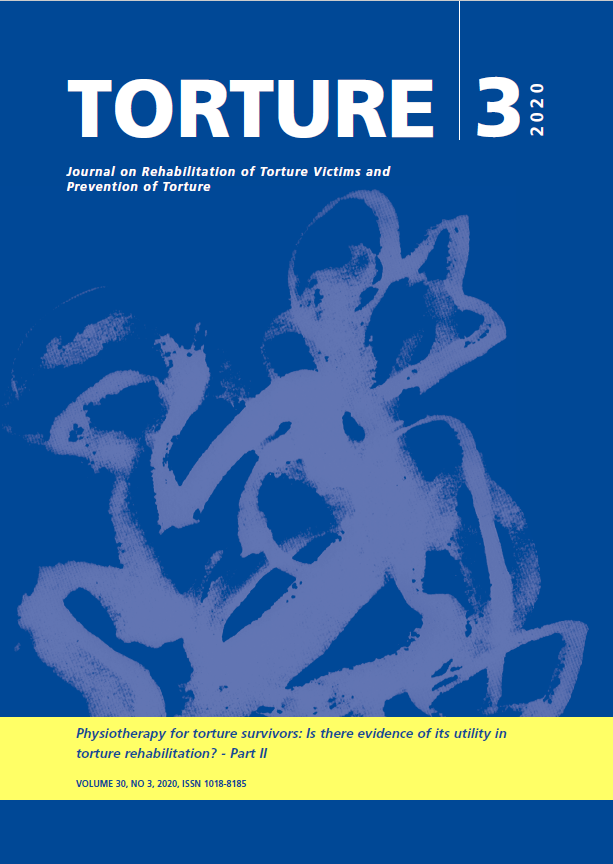EMDR as an evidence-based therapy for trauma
A reply to the Independent Forensic Expert Group’s statement on con¬version therapy
DOI:
https://doi.org/10.7146/torture.v30i3.122782Palabras clave:
Conversion therapy, EMDRResumen
Letter to the Editor.
Citas
American Psychiatric Association – APA (2004). Practice Guideline for the Treatment of Patients with Acute Stress Disorder and Posttraumatic Stress Disorder. Arlington.
Bauman, K. (2019). Besuch beim Schwulen-Heiler [Visit to the Gay healer]. Gesundheitstipp, Juli-August; 22-23.
Bothe, J. (2020). It’s torture not therapy. A global overview of conversion therapy: practices, perpetrators, and the role of states. Copenhagen: International Rehabilitation Council for Torture Victims. https://irct.org/uploads/media/IRCT_research_on_conversion_therapy.pdf
Department of Veterans Affairs & Department of Defense – VA/DoD (2017). VA/DoD Clinical Practice Guideline for the Management of Post-Traumatic Stress. Washington, DC.
Dutch National Steering Committee Guidelines Mental Health Care – DNSCGMHC. (2003). Multidisciplinary Guideline Anxiety Disorders. Quality Institute Heath Care CBO/Trimbos Institute. Utrecht, Netherlands.
Independent Forensic Expert Group (2020a). Statement on Conversion Therapy. Torture, 30, 1; 66-67.
Independent Forensic Expert Group (2020b). Raw data of the study on conversion therapy. https://irct.org/media-and-resources/latest-news/article/1027
International Society for Traumatic Stress Studies – ISTDD. (2018). PTSD Prevention and Treatment Guidelines. Chicago.
Shapiro, F. (2018). Eye Movement Desensitization and Reprocessing: Basic principles, protocols, and procedures. Third edition. New York: Guilford.
World Health Organization (2013). Guidelines for the management of conditions specifically related to stress. Geneva.
Descargas
Publicado
Cómo citar
Número
Sección
Licencia
We accept that some authors (e.g. government employees in some countries) are unable to transfer copyright. The Creative Commons Licence Attribution-NonCommercial-NoDerivatives 4.0 International (CC BY-NC-ND 4.0) covers both the Torture Journal and the IRCT web site. The publisher will not put any limitation on the personal freedom of the author to use material contained in the paper in other works which may be published, provided that acknowledgement is made to the original place of publication.


